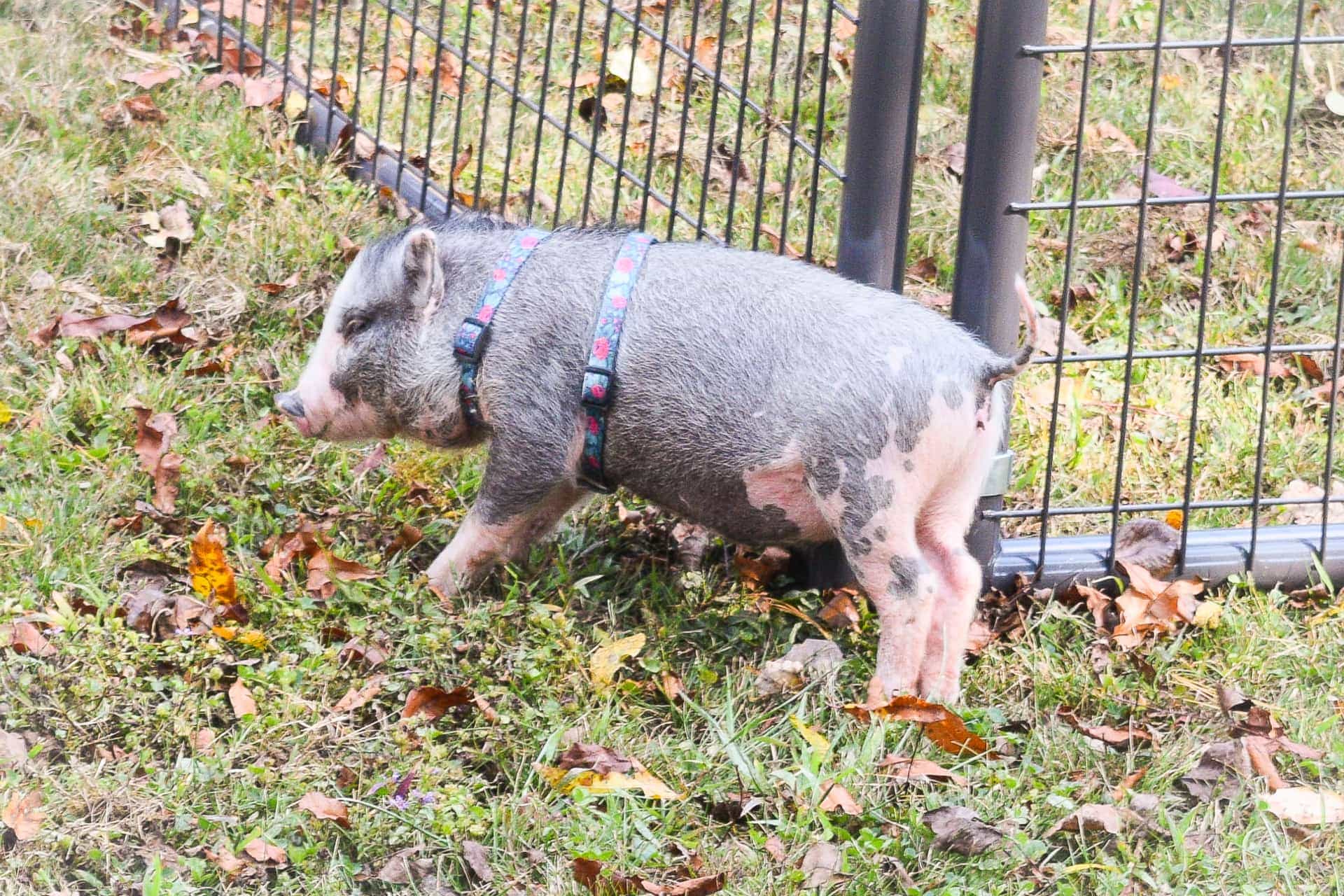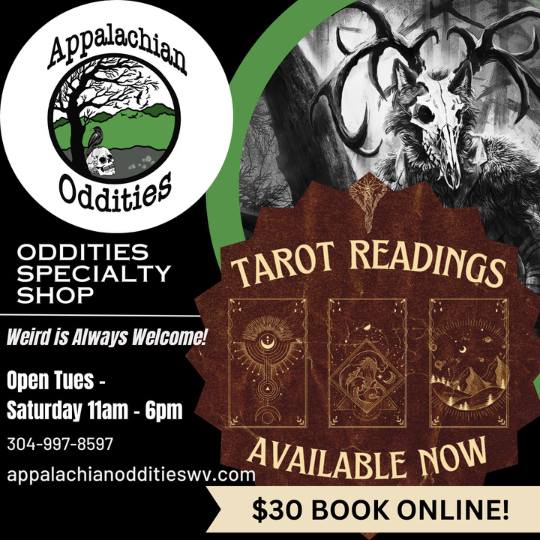BUCKHANNON – Growing up, many people read classics like “Babe” and “Charlotte’s Web” and those books contain innumerable lessons.
But one of the most striking realizations from these stories is that pigs are quite intelligent and can actually make great pets.
Dr. Jessica Scott, associate professor of Gender Studies at West Virginia Wesleyan College, said she never dreamed of having a pet pig when she was young.
However, when she recently saw her now beloved pet, “Miss Piggy,” in a litter of potbellied pigs, it was love at first sight.
Born in July, Miss Piggy and is a 20-pound pink-and-gray potbellied pig who enjoyed getting a back scratch from Scott while her owner told the story of how the two met.

“I never thought of having a pig for a pet when I was younger,” Scott shared. “When I was young and I sang with a children’s choir, we went to a potbellied pig sanctuary in the Eastern Panhandle. After we did that, I learned about how people often get pigs as pets – and didn’t expect them to get so big – and that is how they ended up in the sanctuary.”
But Scott said she and partner, Dr. Melody Meadows, a professor of music at WVWC, have plenty of room for Miss Piggy to make herself at home at their homestead in Randolph County.
“She loves being outside,” Scott said. “No matter how big she gets, she will have plenty of room to ‘root around.’”
Scott said Meadows’s cousin raises hogs.
“He had gotten some potbellied pigs from one of the local stockyards,” Scott said. “I think he bred a couple of them, and he had some baby potbellied pigs. When I saw her, I thought I wanted a more ‘dog-like’ pet, and she was the animal I chose.”
Scott said she has always had a phobia of dogs.
“Dogs kind of wig me out,” she said. “But when I saw Miss Piggy, I loved her. I thought, maybe I could do a pig.”
So, Scott said she did a lot of research on what it takes to own a potbellied pig and decided that having a pig would work.
Miss Piggy has two brothers, and Scott said one of her friends has decided to adopt and raise them.
“She lives in Harrison County and the potbellied pigs will join her goats and donkeys,” she explained.

Scott and Meadows have five cats along with their newest addition, Miss Piggy.
“We think the cats are still a little bit jealous of her,” she said. “And they think Miss Piggy makes too much noise. She can really scream when she is unhappy. Other than that, they just kind of look at one another.”
Caring for a potbellied pig can be difficult because they need to be kept hydrated, yet tend to push their water bowls over and empty them – a lot.
“She spills her water a lot, so we have to be vigilant to keep her water bowls filled,” Scott said. “You can actually litter train a pig or teach them to go to the door when they need to go out – they are very smart animals – and we have a large space outside for her and a space inside for her when it gets cooler. Pigs are as smart as dogs and chimps and have an IQ similar to a dog.”
Miss Piggy loves to root all day long.
“Sometimes, it seems like she finds something and gets really excited but other times it’s like she simply loves to dig around,” Scott said. “The hogs that Mel’s cousins have rooted out the areas where they are in. I read if you keep them inside, you need to fill a box with river rocks where the pig can root around.”
So far, the search for a toy Miss Piggy loves hasn’t yielded any definitive results.
“She mostly just likes to root around the yard,” she said. “She will walk on a leash and she wags her tail when she is happy. They are very much like a dog. She enjoys running around the yard.”
Potbellied pigs have naturally dry skin, so they scratch quite a bit. Another fact about Miss Piggy? She’ll weigh between 100-200 pounds when she’s fully grown.
Scott said some of the videos on YouTube show that potbellied pig owners teach their piglets to sit, stay or spin around.
“We are still searching for the favorite treat that will help us train Miss Piggy,” she said, laughing as she scratched Miss Piggy’s back. “Pigs are highly motivated by food, but she doesn’t like any of the treats that pigs are supposed to like. Everyone said pigs are supposed to like Cheerios, but she doesn’t seem to. She does act like Mazuri pellets are the best things on the planet. She also really enjoys eating spinach and corn, but she won’t eat apples or most fruits.”
Miss Piggy loves to have her belly scratched and when you scratch the spot located just where her belly meets her side, she falls down on the ground and oinks for more.
Luckily, veterinary care isn’t too far away; one of the local vets treats pot belly pigs.
“Dr. Eileen Lammie takes care of potbellied pigs,” Scott said. “We are taking Miss Piggy to have her spayed because they are supposed to make better pets if they are fixed. She will also need a rabies vaccination but isn’t old enough for that yet. They need to be treated for worms, and there is a special vaccination for leptospirosis, a disease that can be found in standing water outside.”
Scott said potbellied pigs live to be 12 to 18 years old, so having a pig is not a short-term commitment.
For fun, Scott said she and Meadows sit and watch Miss Piggy zoom through the backyard.
“We just love watching her take off and run through the yard,” she said. “I really enjoyed taking her to campus with me. The students really loved her. I was surprised by how many people came up and told me they would love to have a pig as a pet. The students really liked her.”

Scott said she really enjoys walking around with Miss Piggy.
“When people see us walking, they talk about how cute she is,” Scott said. “They want to know her name and others ask me about bacon. There are two kind of responses from people who eat meat – one is, ‘gosh, I hope you are a vegetarian’ and the other one is, ‘ha, ha – it would be funny if you named her bacon.’”
(For the record, Scott and Meadows are both vegetarian.)
“But my favorite thing is to snuggle with her,” she said. “She is just like a baby. She will nap on you. She loves to root around and explore new places.”
In addition to “rootin’ around,” Miss Piggy’s favorite activity is eating.
“She loves to eat,” Meadows said.
Having Miss Piggy does come with challenges.
“I have never had a dog before, so I really don’t know how to train an animal,” Scott said. “She will get very large, and I hope she will still be motivated by food during training. Another challenge for some is to have enough outdoor space for a pig.”
Miss Piggy may possibly train to become certified as a therapy pig in the future.
People considering getting a potbellied pig need to make sure they have enough space for a pig, Scott said.
“Make sure you can give the pig a place to root around, whether it is a space outside you don’t mind being torn up or a box inside with rocks,” Scott said. “Make sure you have room for pigs to do pig things. And just be aware, small potbellied pigs get a lot bigger, though it takes two to three years for them to reach their size.”
“Miss Piggy has brought so much joy to my life,” Scott added. “I would totally recommend having a pig as a pet. Pigs are hypoallergenic, so if someone in the family has allergies, pigs are a great choice as a pet. If you want to be loved, get a pig as a pet. Miss Piggy comes running every time she sees me, and we just love having her as our pet.”


























